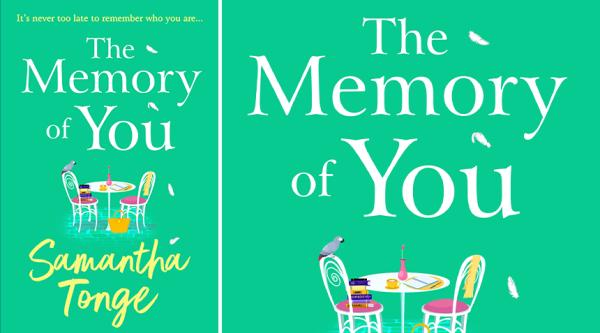Information
Book group: Has anyone seen Charlotte Salter?
We read a thriller about a family with a long-disappeared mother and a father whose dementia is getting worse.
Nicci French are a wife-and-husband team – Nicci Gerrard and Stephen French – with a string of best-selling thrillers to their combined name.
Nicci’s father had dementia, and his final hospital stay inspired John’s Campaign which fights for families’ involvement in a person’s care in hospitals and other settings.
We were intrigued by Has Anyone Seen Charlotte Salter? because one of its central characters has dementia.
Meghan Higgins says, ‘It begins in the 1990s, setting the scene of Charlotte’s disappearance and the death of Duncan Ackerley.
‘We’re reintroduced to their families over 30 years later, where Alec Salter has developed dementia and his family are navigating his move into a care home setting.
‘At the same time, the Ackerley children are hosting a podcast to explore the two tragedies and uncover the truth of what happened all those years ago.’

Great storytelling
Some of our reviewers loved how this story was told.
‘From the moment I opened this book I was hooked, and by the time I turned the last page I was left spiralling,’ says Ene Ogbole.
At the point when one of my favourite characters was being hinted at as the suspect behind Charlotte’s disappearance, I was shaken! I literally gasped out loud and my eyes welled up.
Kym in London says, ‘I was immediately hooked by this book and read it in two sittings.’
As well as liking how the prologue and afterword bookended the story, Kym thought the two time periods were presented well.
‘I much preferred the story being in two halves rather than jumping backwards and forwards in every chapter,’ she says.
'Amazing' if not 'predictable' storyline
Toto2 on Dementia Support Forum agrees, ‘The storyline is amazing, as are all of Nicci French’s books.
Plenty of can’t-put-down chapters and some very sad events, and a very clever detective who will not rest until she has the answers she wants.
Not everyone enjoyed the book’s structure or style. Hillary Mead, Patricia in Northumberland and Maggie Clark all thought it was far too long.
Although Hillary ‘likes a good murder’, she prefers classic mysteries such as those by Agatha Christie.
‘The end is too brief,’ adds Patricia, ‘with an unbelievable summary of how the crimes were dealt with and whether justice was actually carried out.’
However, after what she describes as a ‘never-ending storyline’, Maggie’s final rating wasn’t as low as she’d expected.
‘I persevered to the predictable end and admitted it was five out of 10!’
Portrayal of dementia
Our readers had wide-ranging views about how the book portrayed dementia.
Toto2 says, ‘The fact that Alec ended up with dementia, and was moved from the family home into a nursing home, was not given as much attention or detail that it deserved or I expected it to.’
Hillary, who has vascular dementia and Alzheimer’s disease, agrees, ‘I thought there’d be far more about dementia in it. The references to it didn’t help anyone with dementia or anyone caring for a person with dementia.’
Patricia says, ‘The story around the health and welfare of this character left me thinking that he might as well have had a broken fingernail.
‘There appeared to be no understanding or empathy from his family, and I thought it was a horrendous way in which his home was stripped and disposed of whilst he was still living there and when he was placed in the care home.’
Resonating with other experiences
Although Marion Chapman didn’t warm to Alec’s character, she thought his having dementia had value.
‘His developing dementia and subsequent behaviour was not as impactful as if he had been a more engaging, likeable person,’ she says.
‘However, I am always in favour of dementia becoming a more everyday part of novels, TV etc.
Hopefully this will touch some people who are not part of this world, and make them think and have compassion for those affected by dementia.
For Meghan, dementia played a more meaningful role within the story.
‘Alec’s dementia is used as a tool to add a complication to the plot and further the mystery,’ she says.
Meghan also notes the resentful inner monologue of some characters towards Alec.
‘Whilst this can be quite challenging to read, I do think there are families that might be able to relate to navigating supporting a family member with dementia, with whom they do not have a positive relationship.’
Kym found Alec’s portrayal to be realistic and sensitive, and the book’s theme of loss thought provoking.
‘The ambiguous loss of the main family when their mother disappears, and not knowing what has happened or to have any finality or a chance to say goodbye, really resonated with me,’ she says.
‘It has so many parallels with watching a relative with dementia slowly fade away. There are no answers, no reasons to provide a clear answer to, “Why has this happened to us, how did this happen, where have they gone?”’
Enjoyable for thriller readers
Overall, Marion says this book is a ‘well-crafted thriller’.
‘Nicci Gerrard’s What Dementia Teaches Us about Love is a much better and personal take on dementia, love and family ties,’ she adds. ‘But as a thriller this is a very good read.’
‘I will absolutely be recommending this book to my other book club members at my workplace,’ says Kym, ‘and hope that they enjoy it as much as I did.’
Toto2 agrees, ‘I would advise anyone who loves reading to add this to their list. It had me shocked, surprised and sad at the same time.’
Meghan is more circumspect.
‘I might recommend this book to avid thriller readers, who like twists and turns in their stories,’ she says.
It might be a challenging read for some, considering the framing of the impacts of dementia. However, someone with experience of the complications of caring for an estranged family member might find it quite validating.
Ene adds, ‘As for the motive behind Charlotte’s disappearance? I actually laughed, not because it was funny, but because it was so absurdly human.
‘There’s more to it, of course, but I’ll leave that for interested readers to uncover…’
Has Anyone Seen Charlotte Salter? by Nicci French (Simon and Schuster, 2024), 560 pages, £9.99, ISBN: 9781398524118. Also available as an ebook and audiobook.
Take part in our book group
For our next book group, we invite you to read Living with a Person with Dementia: An A-Z of Strategies for Successful Support by Bernie McCarthy (Jessica Kingsley, 2025), 224 pages, £14.99, ISBN: 9781839973826. Also available as an ebook.
Tell us what you think of this book, which aims to help carers understand dementia and provides an A to Z of issues that come up.
Email us by the end of 4 September 2025 to take part.




comments